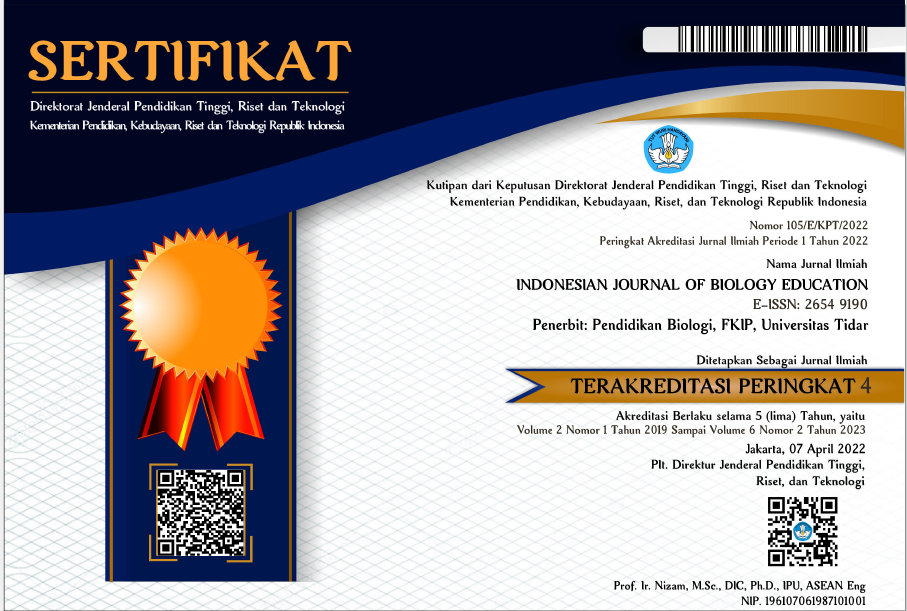The Potential of Self-Organised Learning Environment E-Module to Enhance Students' Critical Thinking Skills and Cognitive Learning Outcomes
Keywords:
E-Module, SOLE, Critical Thingking, Learning OutcomesAbstract
The objective of this study was to ascertain the impact of critical thinking skills on the learning outcomes of junior high school students, with the Self- Organized Learning Environment (SOLE) learning model serving as the experimental framework. The research methodology employed was quasi- experimental, with a research design of nonequivalent control group design. In this study, the experimental class was Grade 8 A Class, while the control class was Grade 8 C class. The SOLE learning model demonstrated a statistically significant effect on critical thinking skills and learning outcomes, as evidenced by the t-test results with a value of 0.05 < 0.000. The N-gain score for the SOLE learning model revealed that 51.5% of the learning outcomes were less effective, while 56.8% of the critical thinking skills were moderately effective. In contrast, the control class in the Discovery Learning learning model achieved 32.3% in learning outcomes and 38.2% in critical thinking skills, both of which were ineffective. The results of the research indicate that critical thinking skills and junior high school science learning outcomes are significantly influenced by the SOLE learning model.












